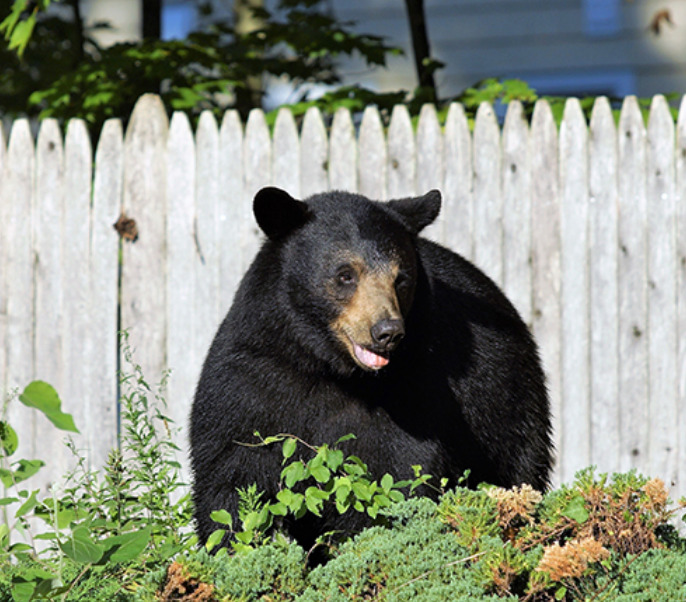Budd Veverka, Director of Land Management for Mianus River Gorge, stopped by the Greenwich Land Trust this past Wednesday for an informative and timely discussion on the expanding presence of Black Bears in our region.
A natural speaker, Budd entertained the crowd with anecdotes from his extensive experience studying and dealing with bears.

Drawing on the evidence of wildlife cameras, reports of sightings, and studies of breeding and hibernation habits, Budd impressed upon us an inescapable conclusion.
Bear populations are increasing, perhaps exploding, and they are venturing further south – into more populated, urbanized areas. This is not necessarily cause for alarm. Black Bears in New England prefer to avoid conflict.
Budd, in describing their furtive and foraging nature, memorably likened them to “giant raccoons.” The fact of the matter remains, however, that bear encounters are becoming more frequent and it would behoove any of us to know how to react in such a scenario.
At the moment you are still most likely to come across a bear on a trail in a nature preserve. Runners in particular should be careful, as moving quickly and quietly they are most likely to catch a bear by surprise.
But bears find our backyards to be useful foraging areas. They will happily dig through our trash cans and recycling bins, or tinker with our grills – so it is best to keep those clean and locked up. What they absolutely love, though, is our bird feeders.
As Budd taught us, Black Bears are lazy for preference and the blend of nuts and seeds we leave out to tempt the birds represent a dense, easily consumed calorie feast for our neighborhood bears. If you keep a bird feeder out, it is important to keep the area below it clean of stray feed. If possible, hang it at least 10 feet high and don’t give bears a means of climbing to it.
If you’d like to know more the CT Dept of Energy and Environmental Protection has a wealth of information:
The Basics of Living with Black Bears
Frequently Asked Questions about Black Bears